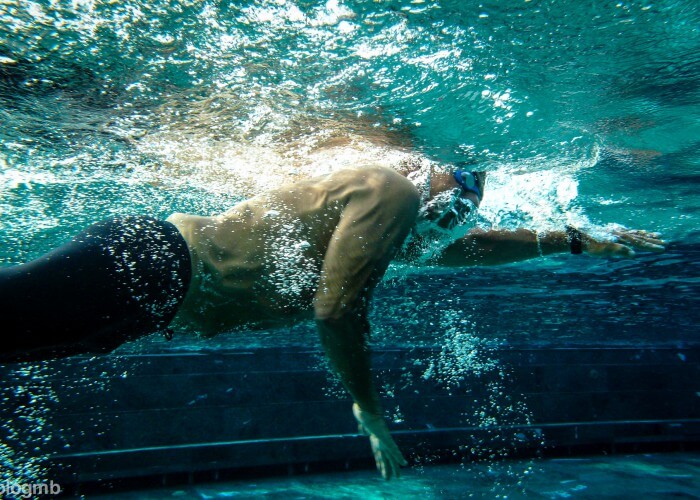Working Through the Swammer Blues

by Mariana de Paula, Swimming World Intern
Swimming is one of the only sports where all of its members have started at a very young age. Naturally, after a decade or so, when it’s finally time to stop, the excitement takes over. But don’t kid yourself just yet. As it turns out, there is only one thing harder than being a swimmer: no longer being one.
Coping with retirement is a lot harder than it sounds. After so many years of following a certain schedule and having swimming as your biggest priority, you start to feel lost.
Slowly, the pace of your life starts to wind down and the smell of chlorine is no longer stuck in your skin. At first, it may look great finally being able to have some time for yourself. It may even be satisfying to watch all of your former teammates start again; waking early to go to morning practice. Well, not you! You can sleep all you want.
So you dream on. You pretend to love every second of your day. You think about all of the great things you will do with your time. You search for new activities. You make plans. But can nothing can prepare you for the blues that come after realizing you are no longer a swimmer.
When retiring from swimming, you start to see meets differently, and it’s not easy. For the first time in your life you have to see the sport from a non-swimmer’s perspective. You have to be ready to deal with the differences after some time. You will try to fit into this new role, while wondering if you can still remember what a good 500 free time was.

Photo Courtesy: Paolo Gamba
Eventually, the pain goes away and you adapt to a new routine. First, change your lifestyle, but still keep the exercise in your daily schedule. This can be easy if you played other sports in high school, but it doesn’t have to be a competitive level activity. Group fitness classes like CrossFit, Pilates and Zumba can shape your body tremendously and make you feel the adrenaline from the old days. Other aerobic activities like running, walking or biking also ramp your heart rate up.
Then, create new habits. When you were still a swimmer, you could eat endless plates of food every meal and would still be fit. Now that your life has down paced, you have to slow down your consumption too. The bounty of snacks you ate at a meet or the family-size plate you were used to at dinner become part of the past. And this is good news! It means you can pick different foods and spend less money on food, because let’s be honest, swimmers have to spend way too much money to stay nourished. After some time you realize that eating better and eating less is actually a great deal.
No swimming means you can look for new hobbies. Find things you love apart from swimming that aren’t related to exercising, like childhood passions or merely old hobbies. More time for reading, more moments to cook weird recipes. Time that you can use to learn another language, play that old piano you’ve always wanted to, travel without planning.
Enjoy the perks of retirement! Remember to apply all of the life lessons and discipline you picked up during your career. Being an athlete really puts you one step ahead in the professional world. Not only will it enhance your chances of being hired, but athletes are valued because of how well they perform under pressure.
Swimmers only take the good things of the sport through life. This new phase lets you reap the rewards from your swimming highs and remember how to fight because of the swimming lows.
Implementing some swimming in your routine is also a great medicine for the emptiness. Of course, nothing like the daily 8,000 yards you used to do in season. Swimming with Masters or by yourself, just to feel the water every now and then helps you find new pleasure in swimming.
Truth is – swimmers never really quit. You can always get involved with swimming in your area through coaching, volunteering or simply watching meets. It rouses nostalgia along with some bittersweet feelings.
You cannot dodge the swammer blues, but they lead to a deeper appreciation for how much those glorious, chlorinated years shaped your character.




Or keep swimming http://www.usms.org